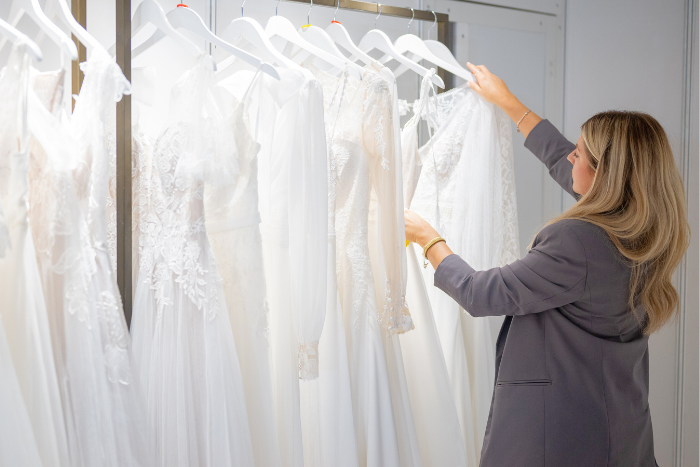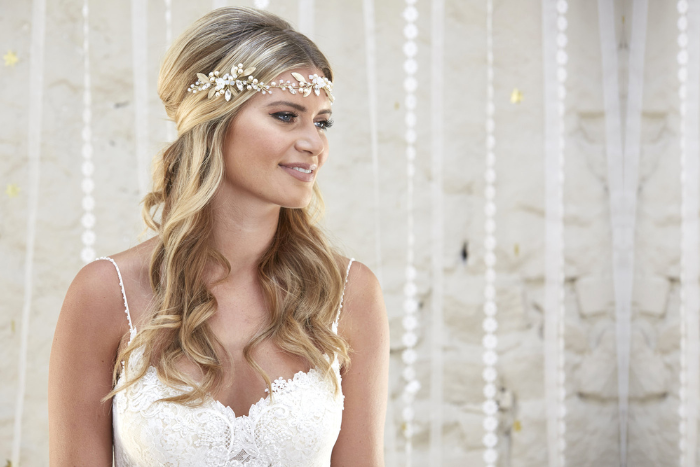The Future of Bridal Fashion: Embracing Eco-Friendly Fabrics and Technologies
Eco-friendly bridalwear designer, Sanyukta Shrestha, shares information on the inspirations, challenges and lessons associated with creating a sustainable brand.
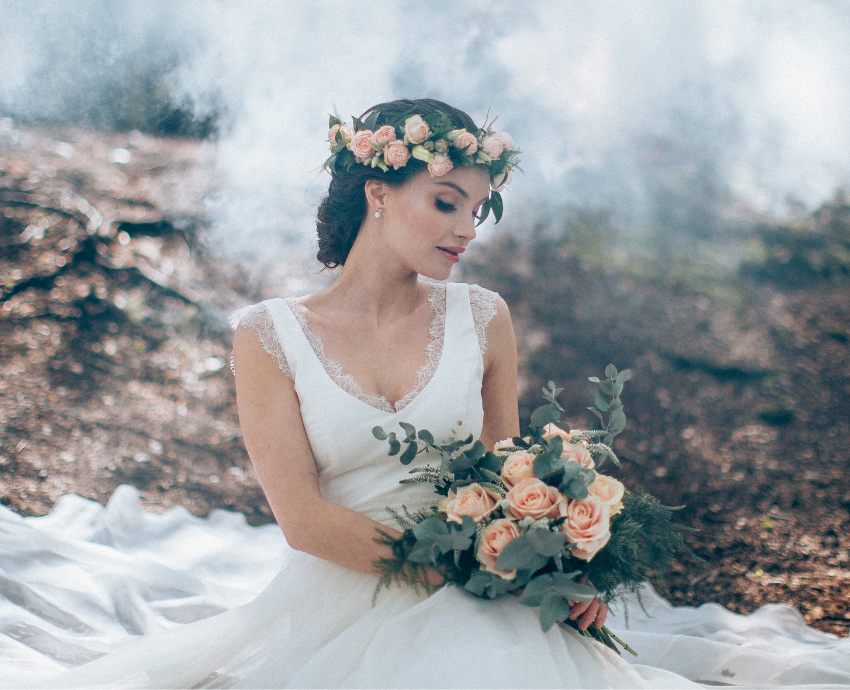

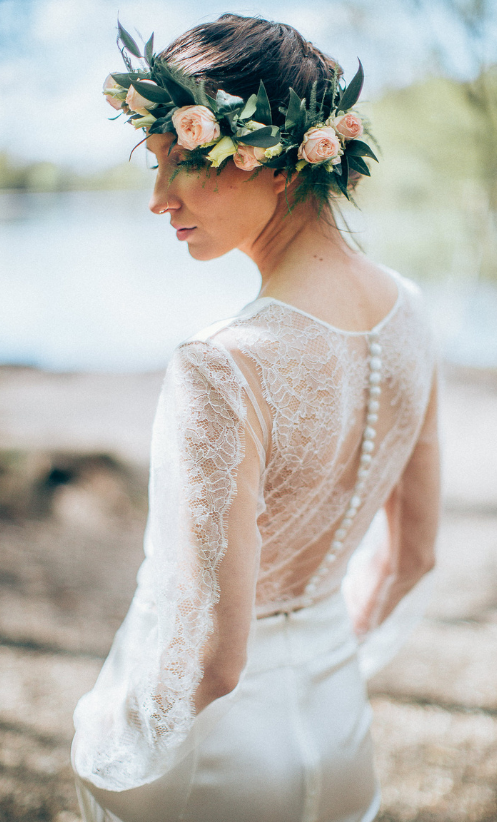
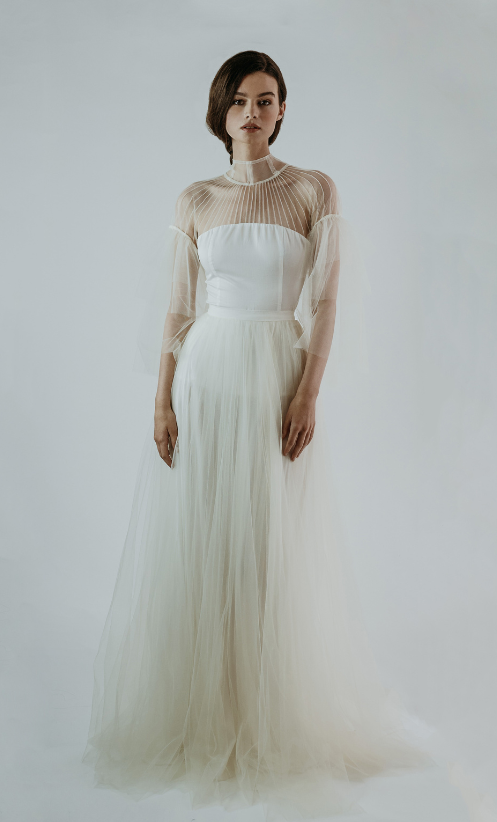
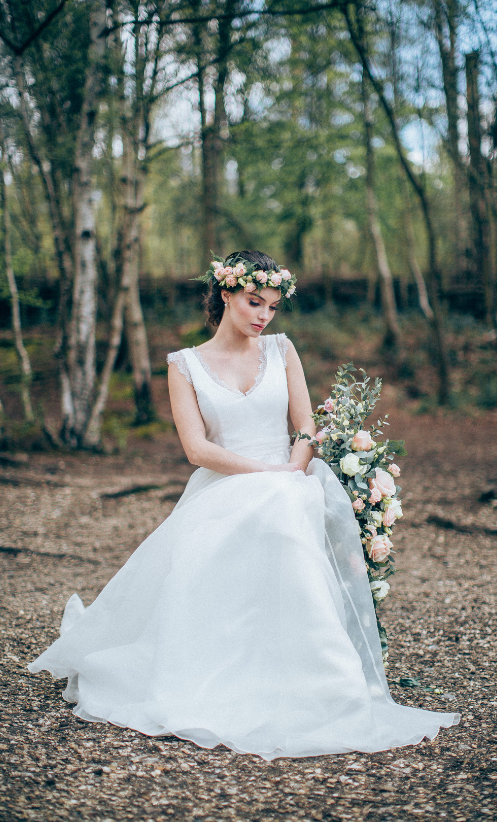
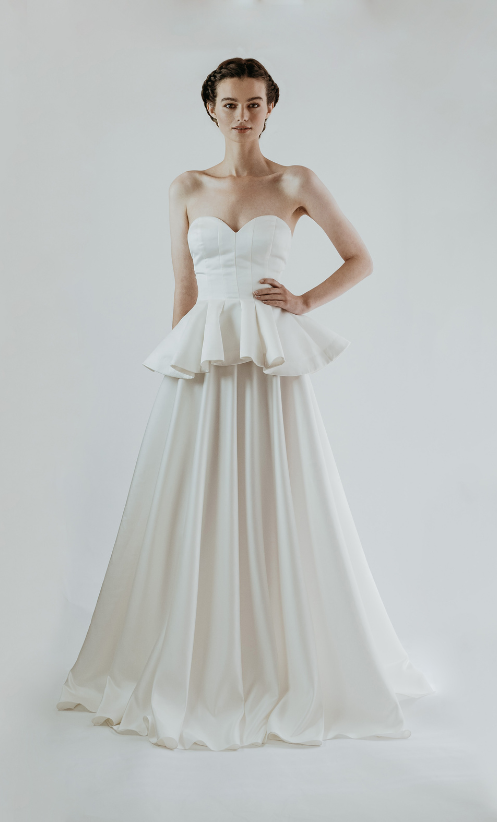
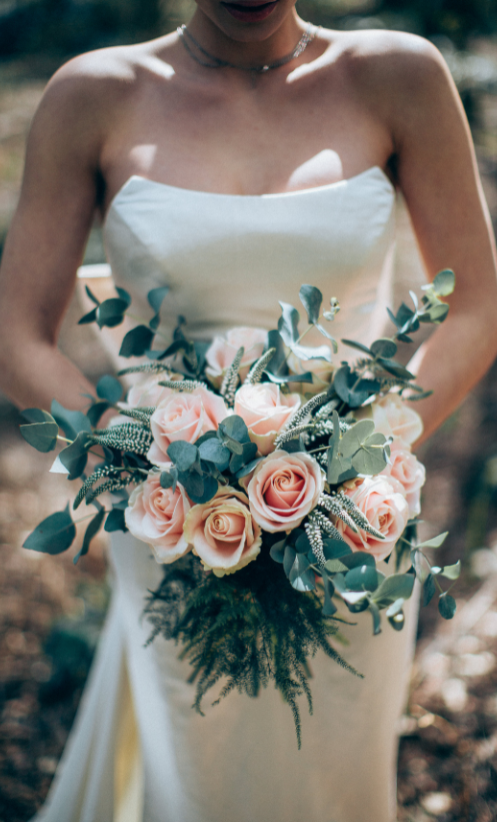
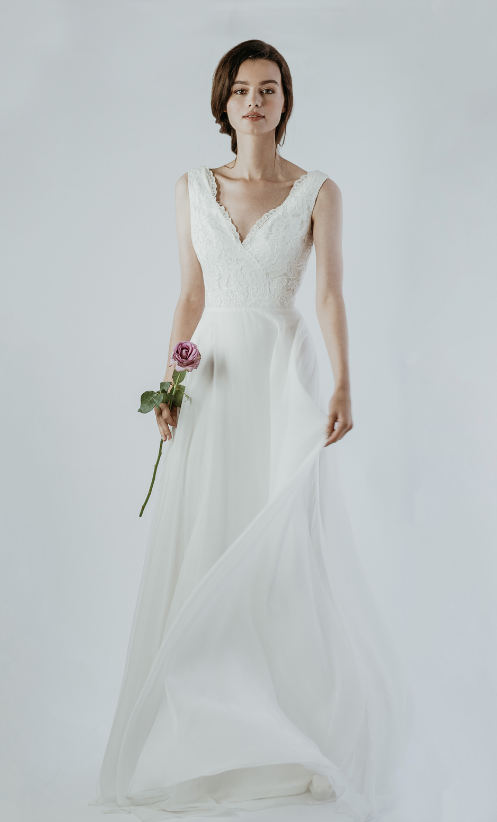
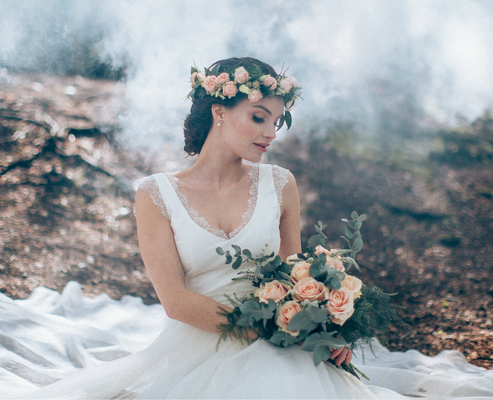
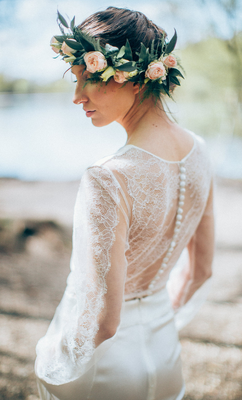
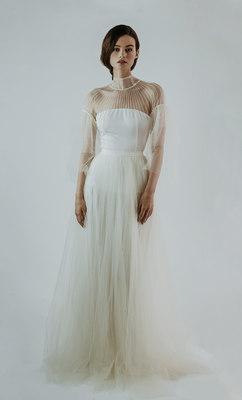
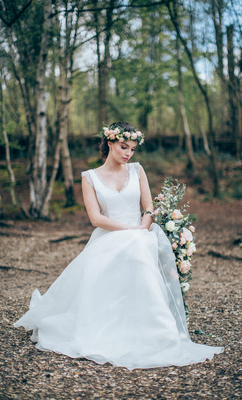
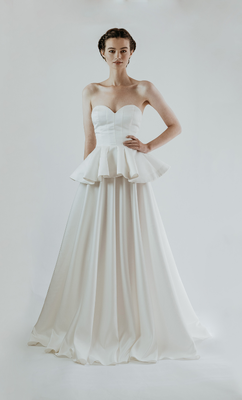
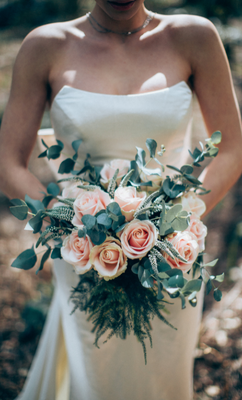
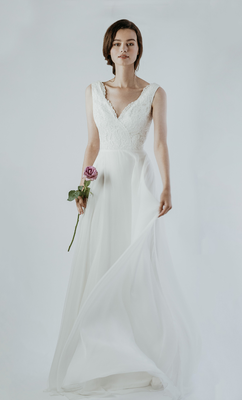
How did sustainability come to be an integral component of your brand ethos?
With the first creation in my design career winning a ‘Best Design Award’ at 17, and as the country’s youngest designer, I made a first international mark designing couture gowns for Miss World 1998 and Miss Asia Pacific 1998 beauty pageants.
My pure love for ethical fashion began when I was 19 while volunteering at WOREC, women’s rehabilitation centre in Nepal. I was offered my first task to teach deprived women in one of the most remote villages in Nepal, to turn their gifted skill of hand loomed fibres, into a desirable fashion. I was mesmerised by the whole organic and intensive process behind it and there has been no looking back.
Since the launch of our first international sustainable bridal collection in 2011, made out of ground-breaking eco-friendly fibres such as milk, banana, hemp, wild nettle and organic silk, an extensive range of Sanyukta Shrestha innovative gowns have been providing stylish options to all women, who care for people as well as the planet. As a pioneer in Sustainable Bridal & Evening Wear, we have been blessed to have won many national & international awards and a cult following of brides across the world celebrating the luxurious, handcrafted, timeless, and sustainable designs that our brand is known for.
The commitment to sourcing eco-friendly materials sustainably along with my desire to support deprived women and providing Fairtrade work for marginalised communities, created a strong community and gave an innovative depth to what our brand represents now.
What first raised your awareness on the issue of fast-fashion/unsustainable products?
Fashion is the second most polluting industry in the World (whether it has been fast fashion or high fashion), creating serious environmental issues ahead for future generations. While volunteering for the World Wildlife Fund Nepal (WWF), I had first-hand experience of learning the harsh cruelty of the fashion world to the endangered animal and its natural habitat. When I spoke to forest rangers, I learned how animal skin and their various parts have been a prime trade for the fashion world and how it affected the whole village, people, and surrounding ecosystem. I was shocked and saddened at the same time.
Twenty years ago, I had a vision of cruelty free fashion that urged me to think deeply about the future of our planet and what the impact each and every one of us has. I want people to be aware that luxury and sustainability aren’t two separate realities, and I have devoted my career as a designer to celebrate the planet with luxurious designs with a conscience that has a unique character which does not have to cost the earth.
Who has been your greatest influence, and how does that trickle down into how you work?
My mother. She is neither a businesswoman nor in fashion, but what inspires me the most in her is her resilience, unbound love and compassion.
What are the biggest challenges you face?
Running a sustainable business is challenging and requires a lot of patience and tolerance. We started back in 2011 when the conversation about sustainability and climate change was not even on the table and looking back now, it is truly unbelievable how we have managed to grow stronger year after year. At that time, our business model seemed unrealistic for many, but we believed in ourselves, and we never gave up. We wanted to grow organically, learn from our mistakes, experiment, fall and rise again. Transparency played an enormous role in the eco-friendly profile we wanted to build, so my commitment to creating opportunities in Nepal was a priority from the beginning. I went back and forth between Nepal and the UK, training my artisans, designing the collection, researching the fabrics and most importantly creating a team that would reflect our beliefs and values. Although it was challenging, I felt it was the right thing to do and has been very rewarding.
What is one thing you are most proud of about the company as a whole?
Bringing smiles to women weavers in villages and seeing them gratified with their skill to earn a living, sense of independence makes me happy and proud. Hand looming in Nepal has a thousand years of history. The reality is that the small cottage industry and hand looming is actually on the verge of extinction, not just in Nepal but in the world as a whole. The women of the village have been hand-weaving fabrics for centuries and I am personally very connected with them as these weavers make the beautiful organic fabrics used in my wedding dress collections. All these remarkable women are given the chance to employ their traditional skills in their own homes to generate extra income. I feel incredibly privileged as a designer, to be able to put their inspirational skills to good use while also protecting our environment.
What are the key things that make your brand sustainable? How do you ensure the material you use has an ethical source?
For me it is the fabric that gives birth to the design, hence why all our fabrics are carefully selected from Fairtrade, GOTS, OEKO-TEX®, Soil association certified ethical suppliers and some of them exclusive to us.
We carefully follow the eco-friendly criteria of production and traceable sourcing from ethical suppliers, and we are proud to say that more than 50% of the fabrics you will find in our collections are hand spun & handloom in Nepal; a sustainable project that empowers the local artisans and promotes the beauty of traditional Nepalese craftsmanship.
By bringing together sustainability with ethical beliefs, the luxury of the eco-fabrics, exquisite designs, and a century old Nepalese craftsmanship makes our brand a one-of-a-kind destination that brings sustainability, innovation, and social responsibility under the same roof.
What is one piece of advice you’ve learnt that you’d want to share with brides/other designers in the wedding industry?
My decision to use natural and eco-friendly fabrics in my collections is deeply connected with my commitment to creating what I like to call “Beauty with Conscience”. A designer is destined to bring beauty to this world, yet we are part of the second-largest polluter in the world. As a designer, I have a power that comes with a responsibility to not only raise awareness regarding sustainability and ethics but change people’s lives with a brand that leads as an example for the industry. In my eyes, a successful garment needs to bring joy to the wearer and to do that, achieving the perfect fit is not enough.
Eco-friendly philosophy not only saves our environment and our health, but also encourages Fairtrade movements and creates an opportunity for the empowerment of the deprived communities in the world. We all can contribute consciously and sustainably, no matter how big or small.
Want to Hear More?
Website - www.sanyuktashrestha.com/
Email - info@sanyuktashrestha.com
Instagram - @sanyuktashrestha

